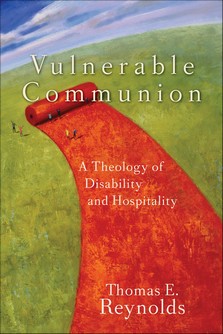Here we are at PART II.
If you didn’t read the first post in the series,
it’s the important first step.
You don’t want the ISP method. That would be weird. :)
Read about the “W” by clicking HERE.
As I’ve studied transformation and purpose I’ve noticed there seems to be something slippery about it. Sometimes we can feel derailed or question our purpose. It’s rather ordinary, in fact.
The famous people in the Bible went though times of doubt and I’m glad those ancient accounts are included because it helps to know that the human condition is rife with slumps, bumps, murky waters, aimless wilderness periods, and questions about what we should be doing on this “Big Blue Marble”.
We tend to see these periods of purposelessness or doubt as problems instead of as part of the journey.
The WISP technique is something I came up with to keep me on track.
I find that keeping a notebook of the process makes it much simpler.
Did you do your homework?
Make sure you do it before you encounter the next step, okay?
STEP 2
“I”
Inquiry
General inquiry is not what the “I” in WISP is about.
This step of the process helps to loosen our firm grip on seeing and directing our lives as usual.
This type of inquiry:
- is one of faith
- leaves some open-end questions up in the air, for now
- digs down deeper into underlying blocks and fears
- taps into a greater understanding of human purpose and how to get there
For this step, you get your handy-dandy notebook out and start by making a list of all the questions you have on your mind right now. What’s bothering you?
Write. It. Down.
There may be many questions. Just get started. Write as much as you can for about 10 minutes.
As you write them out you will find that categories or patterns emerge. If you don’t, let the questions sit and add more in a day or so. Then, look again. If you still don’t see patterns, ask for help from someone you trust.
Examples of possible inquiry/question patterns:
- What can I do that I love that will provide enough money right now?
- What have I enjoyed doing the most and what happened during those times?
- What will it take to get prepared for the next leg and how will I pay for it?
- What caused my last failure and how could I have prepared better?
- What is bothering me about Mr [So & so]’s success?
Do you see the pattern that started to emerge here?
It’s Money.
Fear of failure and jealousy are cropping up too. All good to see.
When we put down our burning questions our fears will be revealed.
Our fears cloud the way to finding our purpose, but…
“The remarkable thing is that our fears themselves are not the obstacles but the vehicles that lead to finding and fulfilling our purpose.” -LD
Example:
Josie finds it hard to find her purpose. She’s been unhappy at her job and wants to make a bigger difference in the world.
Through inquiry she locates the root of her fears, and realizes that her compassion for the intellectually disabled is because of her own story.
She always felt stupid in school. A learning disability made it hard for her to read in first grade. Eventually, she did well in school, but the fear of not being smart enough still distracts her and clouds the pursuits of her greater purpose.
Josie’s purpose lies in working closely with this population.
Upon realizing this, Josie sets out with new verve to get experience and the additional skills needed to find other more meaningful work and accomplish her greater purpose. She creates goals to get there.
Goals are measurable. Wishes are not.
During a period of inquiry we may inquire of God and others we trust, too, but we have to do our hard work ourselves, and not cop out.
If we ask questions of them, we have to be prepared to both listen without judgment and superimposing our wishes and agenda (for the time being), but also we need remove the weeds from all that we are hearing get to the best and most useful parts for the next step. No ACTION is required, just honest inquiry, awareness, and digging around.
In this stage, answering all the questions isn’t as important as having the guts to ask them honestly.
The next step is “S”.
(scroll down)
Sometimes just doing the first two steps will create a breakthrough. You may have found your purpose already. If that happened, I encourage you to see the whole method through regardless. If you find yourself closer to understanding your purpose right now, that’s great, but you’ll be surprised by the next two Steps, and you shouldn’t miss out on them.
HOMEWORK:
Make your inquiry list.
You don’t have to answers the questions yet, just put them out there.
Let them percolate for a few days and then return to them.
Note what patterns emerge. Add new questions.
See what new perspective you come up with.
Click for the next post here.




